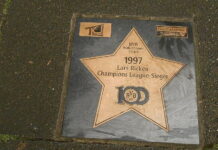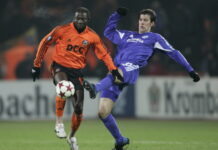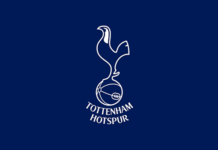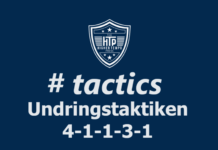While football is a sport and Football Manager is a game about the sport, the pair represent two distinct yet interconnected facets of the beautiful game. While one unfolds on the pitch with raw athleticism and real-life drama, the other immerses its digital players in the strategic intricacies of football management.
Football Manager affords its players the chance to learn a lot more about the tactical and strategical side of the sport, which can be especially beneficial to those. like sports bettors, who want to benefit from football more than the average fan does.
With simulations of several top leagues and others available, Football Manager can assist those wagering on the English Premier League (EPL), for example, through detailed insight into different clubs and their tactics. Peter Addison, iGaming Analyst for SafeBettingSites, highlights why this is relevant by highlighting the most popular football betting markets for British football bettors:
“In the UK of course, the majority of football sports bets will be placed on the EPL, with the three EFL leagues a close second. Sites should not just limit themselves to UK football though. The best online football betting sites should provide access to the major European leagues such as the Bundesliga, La Liga and Serie A, as well as global leagues, youth matches and women’s football.” (source: https://www.safebettingsites.com/football/)
Bearing this in mind, let’s explore some things to look out for when playing Football Manager concerning its accuracy in comparison with the real sport.
Strategic Depth
Football Manager has no digital equal when it comes to its depth and complexity in simulating the management aspects of football. Players assume the managerial role, making tactical decisions while setting training regimes, dealing with player transfers, and more.
The game offers a comprehensive managerial simulation at the level of football its players select, allowing them to delve into the strategic nuances of team building. In contrast, physical football is the live, multi-faceted real deal, where managers must often make split-second intuitive and tactical decisions based on what they observe on the pitch.
While Football Manager provides a detailed strategic framework and accurately recreates the managerial role, it will never be able to fully equate the improvisation and adaptation needed by an actual manager in response to dynamic game situations.
Player Interaction
In Football Manager games, the interaction between manager and players, staff and the media is conveyed through menus offering text-based dialogue. Game managers can deal with their squads and individual players in several ways and conduct pre and post-match press interviews by selecting responses from a list of available options.
The responses selected will affect team morale and dynamics either positively or negatively with the game emphasising the importance of communication skills and interpersonal relationships and communication skills to foster a cohesive team environment. In this regard, Football Manager differs substantially from real football, where managers have face-to-face interactions in the locker room, and on the training ground and pitch.
The limitations of interaction via Football Manager will always be there, but worthy effort has been made to replicate how managers need to motivate and inspire their players, build trust and camaraderie within the squad, and manage egos and personalities to maximize performance.
Tactical Flexibility
Football Manager allows players to experiment with a plethora of formations, tactical systems, and playing styles. In this way, managers are afforded unparalleled flexibility in crafting their teams’ approaches to matches.
They can plan every aspect of their team’s strategy meticulously, from attacking patterns to defensive formations to attacking patterns, while adapting their tactics to counteract opponent strengths and expose their weaknesses. Likewise, in real football, being flexible with tactics is equally important, with actual managers also devising game plans tailored to specific opponents and match situations before matches kick off.
The fluid nature of the game of football means these tactics are often adjusted on the fly in response to injuries, changing circumstances and other variables. Like real football managers, Football Manager players must strike a balance between strategic planning and adapting during games to achieve optimal success.


























